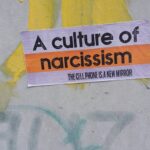ESCAPING THE NARCISSIST
Are you trapped in a toxic relationship? It's time to reclaim your life and find healing. ESCAPING THE NARCISSIST: HOW TO HEAL AND RECOVER FROM NARCISSISTIC ABUSE IN RELATIONSHIPS is your guide to breaking free and starting your journey towards recovery.
Don't let the pain control you any longer. Take the first step today and discover the strategies to overcome emotional abuse and rebuild your life. You deserve happiness and peace.
Start Your Healing Journey TodayRelationship karma is the idea that the energy we put into our relationships will come back to us in some form. It is the belief that our actions, whether positive or negative, will have consequences that will affect our relationships in the future. This concept is rooted in the idea of cause and effect, and it suggests that the way we treat others will ultimately impact the way we are treated in return. Understanding relationship karma requires us to be mindful of our actions and their potential impact on our relationships. It encourages us to consider the long-term effects of our behavior and to strive for positive interactions with others. By recognizing the interconnectedness of our actions and their consequences, we can work towards building healthier and more fulfilling relationships.
Relationship karma is a powerful force that can shape the dynamics of our friendships and romantic relationships. It serves as a reminder that the energy we put into our relationships will ultimately come back to us, whether in the form of trust and loyalty or betrayal and broken trust. By understanding relationship karma, we can become more conscious of the impact of our actions on our relationships and work towards cultivating positive energy in our interactions with others. This awareness can lead to more fulfilling and harmonious relationships, as we strive to create a cycle of positivity and goodwill in our interactions with others.
The Impact of Positive Actions on Friendships: Building Trust and Loyalty
Positive actions have a profound impact on the quality of our friendships. When we consistently demonstrate kindness, empathy, and generosity towards our friends, we build trust and loyalty in our relationships. These positive actions create a strong foundation of mutual respect and understanding, which can lead to deeper and more meaningful connections with others. By consistently showing up for our friends, being supportive, and celebrating their successes, we foster a sense of trust and loyalty that strengthens our friendships over time. This creates a positive cycle of reciprocity, where our friends are more likely to reciprocate our positive actions, leading to a mutually beneficial and fulfilling relationship.
Building trust and loyalty in our friendships requires consistent effort and genuine care for the well-being of our friends. It involves being reliable, honest, and empathetic in our interactions with others. When we consistently demonstrate these qualities, we create a positive environment where our friends feel valued and supported. This fosters a sense of security and mutual respect in our relationships, leading to deeper connections and a greater sense of fulfillment. By prioritizing positive actions in our friendships, we can create a cycle of trust and loyalty that strengthens our relationships and brings us closer to those we care about.
The Consequences of Negative Actions on Friendships: Betrayal and Broken Trust
Negative actions can have detrimental effects on our friendships, leading to betrayal and broken trust. When we engage in behaviors such as dishonesty, manipulation, or betrayal, we erode the foundation of trust in our relationships. This can lead to feelings of hurt, resentment, and disillusionment in our friendships, ultimately causing irreparable damage to the connection we share with others. Negative actions create a cycle of negativity that can poison our relationships, leading to feelings of betrayal and broken trust that are difficult to repair. It is important to recognize the consequences of negative actions on our friendships and strive to avoid behaviors that can harm the trust and loyalty we share with others.
Betrayal and broken trust can have long-lasting effects on our friendships, causing rifts that are difficult to mend. When we engage in negative actions that harm our friends, we create a cycle of negativity that can be difficult to break. This can lead to feelings of resentment, anger, and disappointment in our relationships, ultimately causing irreparable damage to the connection we share with others. It is important to recognize the impact of negative actions on our friendships and take responsibility for the harm we have caused. By acknowledging the consequences of our behavior and working towards making amends, we can begin to repair the damage caused by betrayal and broken trust in our relationships.
Cultivating Healthy Relationship Karma: Practicing Empathy and Understanding
Cultivating healthy relationship karma involves practicing empathy and understanding in our interactions with others. By putting ourselves in the shoes of our friends and seeking to understand their perspectives, we can create a more positive and harmonious environment in our relationships. This involves actively listening to others, being open-minded, and showing compassion for their experiences. By practicing empathy and understanding, we can create a cycle of positivity in our interactions with others, leading to stronger and more fulfilling relationships. This approach fosters a sense of mutual respect and appreciation in our friendships, creating a positive cycle of reciprocity that strengthens our connections with others.
Practicing empathy and understanding in our relationships requires us to be mindful of the impact of our actions on others. It involves being considerate of the feelings and experiences of our friends, and striving to create a supportive and nurturing environment in our interactions with others. By demonstrating empathy and understanding towards those we care about, we can create a cycle of positivity that fosters trust and loyalty in our relationships. This approach encourages open communication, mutual respect, and genuine care for the well-being of others, leading to deeper connections and a greater sense of fulfillment in our friendships.
Nurturing Friendships Through Kindness and Generosity: The Key to Lasting Bonds
Nurturing friendships through kindness and generosity is essential for creating lasting bonds with others. By consistently demonstrating acts of kindness, such as offering support, showing appreciation, or lending a helping hand, we create a positive environment that fosters trust and loyalty in our relationships. This approach creates a cycle of reciprocity where our friends are more likely to reciprocate our positive actions, leading to stronger and more fulfilling connections with others. Nurturing friendships through kindness and generosity creates a sense of mutual respect and appreciation that strengthens the bonds we share with those we care about.
Kindness and generosity are essential for nurturing lasting bonds with others. By consistently demonstrating these qualities in our interactions with friends, we create a positive environment that fosters trust and loyalty in our relationships. This approach encourages open communication, mutual respect, and genuine care for the well-being of others, leading to deeper connections and a greater sense of fulfillment in our friendships. By prioritizing acts of kindness and generosity in our interactions with others, we can create a cycle of positivity that strengthens the bonds we share with those we care about.
Breaking the Cycle of Negative Relationship Karma: Making Amends and Forgiveness
Breaking the cycle of negative relationship karma involves making amends for past mistakes and seeking forgiveness from those we have harmed. When we recognize the harm caused by negative actions in our relationships, it is important to take responsibility for our behavior and work towards repairing the damage caused. This involves acknowledging the impact of our actions on others, expressing genuine remorse, and making efforts to make things right. By seeking forgiveness from those we have harmed, we can begin to break the cycle of negativity in our relationships and work towards creating a more positive environment for ourselves and those we care about.
Making amends for past mistakes is essential for breaking the cycle of negative relationship karma. This involves taking responsibility for the harm caused by negative actions, expressing genuine remorse, and making efforts to repair the damage done to our relationships. By acknowledging the impact of our behavior on others and seeking forgiveness from those we have harmed, we can begin to create a more positive environment in our relationships. This approach fosters open communication, mutual respect, and genuine care for the well-being of others, leading to deeper connections and a greater sense of fulfillment in our friendships.
The Importance of Self-Reflection and Accountability in Maintaining Positive Relationship Karma
Self-reflection and accountability are essential for maintaining positive relationship karma. By taking time to reflect on our actions and their impact on others, we can gain insight into how we can improve the quality of our relationships. This involves being honest with ourselves about the ways in which we may have harmed others, taking responsibility for our behavior, and making efforts to change for the better. By holding ourselves accountable for the harm caused by negative actions, we can work towards creating a more positive environment in our relationships. This approach fosters self-awareness, personal growth, and a greater sense of empathy towards others, leading to stronger connections and more fulfilling friendships.
Maintaining positive relationship karma requires us to be mindful of the impact of our actions on others. This involves taking time for self-reflection, being honest with ourselves about the ways in which we may have harmed others, and making efforts to change for the better. By holding ourselves accountable for the harm caused by negative actions, we can work towards creating a more positive environment in our relationships. This approach fosters self-awareness, personal growth, and a greater sense of empathy towards others, leading to stronger connections and more fulfilling friendships.
In conclusion, relationship karma is a powerful force that shapes the dynamics of our friendships and romantic relationships. By understanding the impact of positive actions on building trust and loyalty in our relationships, as well as recognizing the consequences of negative actions on causing betrayal and broken trust, we can work towards cultivating healthy relationship karma through practicing empathy and understanding. Nurturing friendships through kindness and generosity is essential for creating lasting bonds with others while breaking the cycle of negative relationship karma involves making amends for past mistakes and seeking forgiveness from those we have harmed. Finally, self-reflection and accountability are essential for maintaining positive relationship karma as they foster self-awareness, personal growth, and a greater sense of empathy towards others.
By recognizing the interconnectedness of our actions with their consequences on our relationships, we can strive towards creating a cycle of positivity that strengthens the bonds we share with those we care about. Ultimately, by prioritizing acts of kindness, empathy, understanding, accountability, self-reflection, making amends when necessary, seeking forgiveness when needed; we can cultivate healthy relationship karma that leads to stronger connections with others and a greater sense of fulfillment in our friendships.


